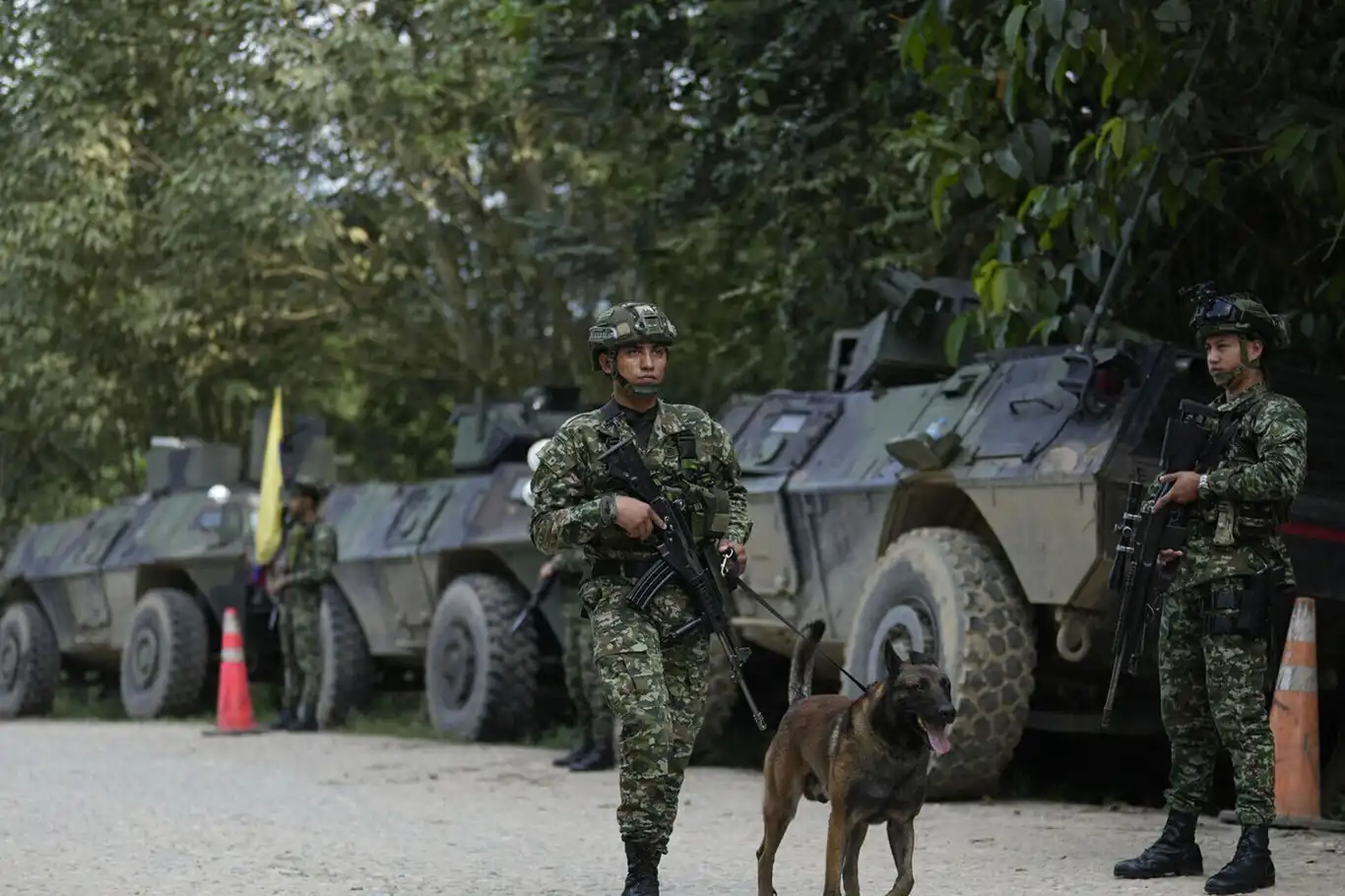Colombian President declares state of emergency in Catatumbo amid escalating violence


President Gustavo Petro has declared a "state of internal unrest" in Colombia's north-eastern Catatumbo region to address a surge in deadly violence between rival armed groups.
This measure, last implemented in 2008, grants the president emergency powers to restore order, including imposing curfews.
The declaration, approved unanimously by Petro's ministers, comes after weeks of violent clashes between the National Liberation Army (ELN) and a splinter group of the Revolutionary Armed Forces of Colombia (FARC). Authorities report that at least 80 people have been killed in the region, which shares a border with Venezuela.
The Colombian Ombudsman’s Office described the situation as critical, stating that approximately 36,000 residents have been displaced from their homes.
Under Colombian law, a "state of internal unrest" can be invoked in cases of severe public disorder that threaten institutional stability, state security, or citizen coexistence. The emergency declaration is valid for 90 days and is specific to Catatumbo. It may be extended by up to 180 days with legislative approval.
The government’s immediate focus is to stabilize the region, which has seen escalating violence despite ongoing peace talks with armed groups.
The Catatumbo region has long been a hotspot for armed conflict. In 2016, the Colombian government signed a historic peace deal with the FARC, leading to the disarmament of its main guerrilla faction. However, some splinter groups have remained active, engaging in drug trafficking and armed clashes.
The ELN, a Marxist-Leninist guerrilla group with around 5,000 fighters, is also deeply involved in illegal activities such as kidnappings and protection rackets. Although the government has pursued peace negotiations with the ELN, talks have frequently stalled. Following the recent attacks, President Petro accused the ELN of committing “war crimes” and temporarily suspended the negotiations.
The ELN's attacks have targeted members of a FARC splinter group, which itself has been in peace discussions with the government. The recent violence has disrupted these talks, further complicating efforts to establish peace in the region.
The humanitarian crisis in Catatumbo continues to worsen, with thousands displaced and critical resources strained. The government’s emergency measures aim to stabilize the region and address the urgent security and humanitarian needs.
As the emergency declaration takes effect, President Petro’s administration faces the challenge of balancing military actions to restore order with the pursuit of long-term peace agreements. The success of this intervention could significantly impact Colombia’s broader efforts to resolve decades of internal conflict. (ILKHA)
LEGAL WARNING: All rights of the published news, photos and videos are reserved by İlke Haber Ajansı Basın Yayın San. Trade A.Ş. Under no circumstances can all or part of the news, photos and videos be used without a written contract or subscription.
Mawlavi Zabihullah Mujahid, spokesperson for the Islamic Emirate, announced that significant progress has been made in addressing addiction and social welfare challenges across the country during 2025.
Hamas has reaffirmed that the voice of the Palestinian journalist will remain stronger than the bullets of the Israeli occupation, stressing that Israel’s systematic crimes have failed to silence the truth or erase the Palestinian narrative.
Israeli occupation authorities have informed 37 international humanitarian organizations that they will be prohibited from operating in the Palestinian territories beginning January 1, 2026.
European Orphan Hand (Avrupa Yetim Eli), which has been continuing humanitarian relief efforts in Sudan, has provided food parcel assistance to civilians who fled the war and sought refuge in displacement camps, following earlier distributions of hot meals and blankets.